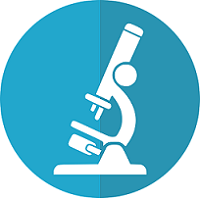 We are on the beat to find and report just what is happening now in Precision Medicine. Look for this on going report each month as we find articles, commentary, interviews, and events of interest on Precision Medicine. Read more posts on Precision Medicine and follow the hashtag #PrecisionMedicine.
We are on the beat to find and report just what is happening now in Precision Medicine. Look for this on going report each month as we find articles, commentary, interviews, and events of interest on Precision Medicine. Read more posts on Precision Medicine and follow the hashtag #PrecisionMedicine.
The US National Library of Medicine says “although the term ‘precision medicine’ is relatively new, the concept has been a part of healthcare for many years. For example, a person who needs a blood transfusion is not given blood from a randomly selected donor; instead, the donor’s blood type is matched to the recipient to reduce the risk of complications. Although examples can be found in several areas of medicine, the role of precision medicine in day-to-day healthcare is relatively limited. Researchers hope that this approach will expand to many areas of health and healthcare in coming years.”
What is the difference between precision medicine and personalized medicine? What about pharmacogenomics?
According to the NIH US National Libarary of Medicine, National Research Council, there is a lot of overlap between the terms. Learn more.
Precision Medicine in Action
YEAR-END UPDATE: It has been a busy year for All of Us! In 2018, we launched nationwide, added dozens of partners, and grew our community. This and other program milestones in @EricDishman‘s update. #JoinAllofUs pic.twitter.com/jGTPvj1WyH
— AllofUsResearch (@AllofUsResearch) December 20, 2018
FDA takes new action to advance the development of reliable and beneficial genetic tests that can improve patient care – FDA takes a significant step forward in driving the efficient development of novel diagnostic technologies that scan a person’s DNA to diagnose genetic diseases and guide medical treatments. For the first time, the agency has formally recognized a public database that contains information about genes, genetic variants and their relationship to disease.
6 CME courses to help you navigate precision medicine – To help physicians, the AMA Ed Hub™—your center for personalized learning from sources you trust— offers a series of short, free online CME modules covering specific topics in genomics and precision medicine.
To Read
How personalized medicine is transforming your health care – From the National Geographic, January 2019 issue. Stunning advances in gene research and data mining will predict diseases and devise treatments tailored to each of us.
Precision Medicine Could Have a Major Impact on Healthcare Outcomes and Costs – From the Harvard Business Review – The transformation of health care continues at a rapid pace, bringing opportunities and challenges for health care providers to deliver improved clinical outcomes at lower costs.
Listen
Dr. Nick: The Incrementalist
The Incrementalist airs weekdays at 4:00am, 12 noon, and 8:00pm ET on HealthcareNOW radio. Host Dr. Nick van Terheyden aka Dr. Nick (@drnic1) talks to to Won Chung MD. The discussion offers great insights around correlation with car model, marriage and beyond for health prediction. Linking our buying and social data to outcomes and then offering this for better interventions.
Events
All of Us Research Program
THURSDAY, 11/29 at 1PM ET: We’re joining a Twitter chat with @aahivmcomm + @ANACnurses to talk about All of Us + why people living with #HIV should participate. Use #WhyJoinAllofUs to follow the convo! #JoinAllofUs pic.twitter.com/FJJj7M4Y7U
— AllofUsResearch (@AllofUsResearch) November 26, 2018
4th Annual Personalized Medicine Conference
Held November 14-15 2018 at Harvard Medical School, Boston MA
Thanks to #PMConf attendees for another incredible gathering of the #personalizedmedicine community! Your insights, passion & action will continue to transform R&D, policies, business, health & healthcare. Let’s see how far we get this time next year. See you Nov 2019! pic.twitter.com/zmhJfbQbvm
— PMC (@permedcoalition) November 15, 2018
Powerful panel #pmconf on whether “everyday” people should care about #personalizedmedicine. @emilykg1 on her experience living with #cystic fibrosis: “I have faith in research and science but my concern is that the field can’t move fast enough.” @CF_Foundation @permedcoalition pic.twitter.com/W24pg7UnOv
— Peter Neumann (@PeterNeumann11) November 14, 2018
Precision Medicine Initiative
The National Library of Medicine also tells us the “Precision Medicine Initiative is a long-term research endeavor, involving the National Institutes of Health (NIH) and multiple other research centers, which aims to understand how a person’s genetics, environment, and lifestyle can help determine the best approach to prevent or treat disease.” The Initiative has both short and long term goals.
Resources
The Journal of Precision Medicine (@JournPrecMed)
The world’s first print publication to discuss the many key global issues surrounding this rapidly evolving landscape. It does so by connecting both ends of the life science continuum – the compelling discoveries being realized in molecular research with the critical needs of the patient in the clinical setting.
The Personalized Medicine Coalition (@permedcoalition)
PMC, representing innovators, scientists, patients, providers and payers, promotes the understanding and adoption of personalized medicine concepts, services and products to benefit patients and the health system.
